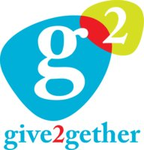Description

Swell

WhatsApp Business Platform
Comprehensive Overview: Swell vs WhatsApp Business Platform
Swell and the WhatsApp Business Platform are solutions aimed at facilitating business communications, but they have distinct primary functions, target markets, and features. Let's break down each platform:
a) Primary Functions and Target Markets
Swell:
- Primary Functions: Swell is primarily a customer communication platform focused on enhancing interaction through messaging, reviews, and feedback. It's designed to help businesses build customer relationships via direct messaging, reputation management, and streamlining customer feedback.
- Target Markets: Swell primarily targets small to medium-sized businesses (SMBs) across various sectors like healthcare, dental, automotive, home services, and retail. These businesses often need tools to boost local presence and customer engagement without the complexity or cost associated with enterprise-level solutions.
WhatsApp Business Platform:
- Primary Functions: This platform is an extension of WhatsApp, aimed at providing businesses with tools for customer communication via the popular messaging app. Features include automated messages, chatbots, and customer support capabilities, facilitating seamless and instant communication with customers.
- Target Markets: WhatsApp Business targets a wide range of businesses from small enterprises to large corporations across global markets. It's particularly popular in regions where WhatsApp is the dominant messaging platform, such as parts of Europe, Latin America, India, and Africa. Companies looking to leverage its massive user base for customer support, marketing, and engagement find it appealing.
b) Market Share and User Base
Swell:
- Market Position: Swell, being a more niche player focused on specific market segments, has a smaller market share compared to global messaging giants. Its user base comprises SMBs looking for specialized communication and reputation management.
- User Base: Specific user numbers are less widely publicized due to the targeted and localized nature of their services, but they are popular among businesses looking for integrated review and feedback systems.
WhatsApp Business Platform:
- Market Position: WhatsApp, with over two billion monthly active users globally, offers a substantial market presence. The WhatsApp Business Platform has leveraged this user base, becoming a popular choice for businesses in regions where WhatsApp is widely used.
- User Base: WhatsApp Business has a significant user base, especially in markets where messaging apps are preferred for business communications. It's particularly preferred by businesses seeking to maintain communication via a platform their customers are already familiar with.
c) Key Differentiating Factors
-
Integration and Ecosystem:
- Swell: Offers specialized integrations with industry-specific software and a focus on review management and feedback collection, enhancing reputational strategies.
- WhatsApp Business: Provides API capabilities for larger businesses to integrate with CRM systems, more generic but versatile due to its wide user base.
-
Global vs. Local Focus:
- Swell: Has a more localized approach, focusing on enhancing customer interaction and reputation at the community level.
- WhatsApp Business: Has a global reach, catering to businesses that need to maintain international customer communications.
-
Ease of Use and Implementation:
- Swell: Tailored for ease of use by SMBs, with out-of-the-box solutions that require minimal technical expertise.
- WhatsApp Business: While user-friendly, businesses might require technical resources to fully implement and integrate API functionalities for automation and customer engagement at scale.
-
Platform-Specific Features:
- Swell: Emphasizes on enhancing online reviews and managing customer feedback, crucial for reputation management.
- WhatsApp Business: Strengths lie in instant, conversational customer service, leveraging its widespread adoption for marketing and support workflows.
Ultimately, the choice between Swell and WhatsApp Business will depend on the specific needs of the business, the regions they operate in, and how they prioritize customer communication and engagement strategies.
Contact Info

Year founded :
2016
Not Available
Not Available
United States
Not Available

Year founded :
Not Available
Not Available
Not Available
Not Available
Not Available
Feature Similarity Breakdown: Swell, WhatsApp Business Platform
To provide a comprehensive feature similarity breakdown for Swell and WhatsApp Business Platform, let's delve into each aspect systematically:
a) Core Features in Common
1. Communication Tools:
- Messaging: Both platforms allow businesses to communicate directly with customers through messaging. This includes sending and receiving messages, chat histories, and conversation management.
- Notifications: Businesses can send notifications to customers, which can include order confirmations, delivery updates, and promotional messages.
2. Customer Engagement:
- Customer Support: Both platforms provide tools for assisting customers through queries, resolving issues, and offering support.
- Feedback Collection: Businesses can gather customer feedback, although the methods might differ slightly between platforms.
3. Integration and APIs:
- Both Swell and WhatsApp Business Platform offer APIs for integration with other systems and tools, allowing businesses to automate workflows and synchronize data across platforms.
b) User Interface Comparison
Swell:
- Design: Often designed with a focus on eCommerce, providing a clean, streamlined interface for managing online store activities.
- Dashboard: Typically includes comprehensive analytics and reporting features, enabling users to track sales, customer behaviors, and other key metrics.
- Customization: Offers significant customization options in terms of store appearance and functionality, catering to diverse business needs.
WhatsApp Business Platform:
- Design: Focused on messaging, with a simple, user-friendly interface that prioritizes communication efficiency.
- Chat Interface: Emulates the standard WhatsApp chat interface, providing familiarity for users, with easy access to customer interactions.
- Business Profile: Encompasses features like business descriptions, hours, location, and contact details, all accessible to users interacting with the business.
c) Unique Features
Swell:
- E-commerce Functionality: Swell specializes in providing robust eCommerce solutions, including product catalog management, payments handling, shipping integrations, and advanced eCommerce-related analytics.
- Customization and Scalability: Known for its highly customizable environment, allowing businesses to tailor features extensively to fit their unique operational needs.
- Marketplace Support: Provides tools for enabling multi-vendor marketplaces, a feature not directly available in WhatsApp Business.
WhatsApp Business Platform:
- Wide Reach and Accessibility: Leverages the widespread usage of WhatsApp, granting businesses immediate access to a vast user base across different demographics.
- Interactive Messaging Tools: Such as quick replies, automated messages, and interactive buttons, which are highly effective for customer engagement.
- End-to-End Encryption: Ensures secure communication with customers, a strong privacy and data protection feature that resonates with privacy-conscious users.
Both Swell and WhatsApp Business Platform provide valuable tools for businesses but serve distinct purposes; Swell is more eCommerce-centric, while WhatsApp Business Platform excels in communication and customer engagement.
Features

Not Available

Not Available
Best Fit Use Cases: Swell, WhatsApp Business Platform
Swell
Swell is a headless e-commerce platform designed to offer flexibility and customization. It is particularly well-suited for:
a) Types of Businesses or Projects for Swell:
-
Custom-Built Stores: Swell is ideal for businesses that want a highly customized online store without being constrained by traditional e-commerce platform templates. It allows for a tailored user experience and functionality.
-
Scaling Startups and Small to Medium Enterprises (SMEs): Swell supports businesses in growth phases by providing a scalable infrastructure that can handle increased product lines and customer bases without compromising performance.
-
Omni-Channel Retailers: For businesses that sell across multiple channels, Swell provides a seamless integration to manage these efficiently from a unified backend.
-
Brands Prioritizing Unique UX/UI: Companies that emphasize standout design and user interactions can benefit from Swell’s flexibility in achieving distinct visual and functional features.
-
International Sellers: Swell supports multi-currency and multilingual capabilities, making it a strong candidate for businesses targeting a global audience.
WhatsApp Business Platform
The WhatsApp Business Platform is a tool designed to facilitate direct and personal communication between businesses and their customers.
b) Scenarios for WhatsApp Business Platform:
-
Customer Support and Service: Companies looking to enhance their customer service can use WhatsApp for real-time communication, handling inquiries, resolving issues, and providing timely support.
-
Engagement and Marketing: Businesses utilizing conversational marketing strategies can engage customers with personalized offers, updates, and promotions through WhatsApp’s instant messaging.
-
Small to Medium Businesses with Limited Technical Expertise: The platform provides a straightforward way for SMEs to connect with customers without needing extensive technical know-how.
-
Appointment-Based Services: Businesses like salons, clinics, and service centers can use WhatsApp for booking and appointment confirmations, reducing no-shows and improving service efficiency.
-
International and Diverse Language Audiences: Given its global reach and multilingual support, WhatsApp is excellent for companies that operate in multiple countries and cater to diverse language groups.
d) Catering to Different Industry Verticals and Company Sizes:
-
Swell serves a broad range of industries, from fashion and lifestyle to electronics and consumer goods, especially those that require a unique online selling experience. It can fit both niche brands and larger enterprises needing specific customizations to support complex product catalogs or advanced integrations.
-
WhatsApp Business Platform is versatile across industries such as retail, hospitality, healthcare, and financial services. It’s useful for businesses of any size that seek to maintain strong customer relationships, offer personalized interaction, and drive engagement through a widely-used messaging app.
Both Swell and WhatsApp Business Platform cater to various business needs by providing flexible, scalable solutions that can be adapted to different sectors and operational scopes. Whether a business prioritizes e-commerce innovation or customer engagement, these platforms offer tools to enhance performance and connectivity.
Pricing

Pricing Not Available

Pricing Not Available
Metrics History
Metrics History
Comparing undefined across companies
Conclusion & Final Verdict: Swell vs WhatsApp Business Platform
When evaluating Swell and WhatsApp Business Platform, various factors such as cost, functionality, scalability, user experience, and specific business needs must be considered in order to determine which product offers the best overall value. Below is a breakdown of each platform's pros and cons, along with recommendations for users deciding between them.
a) Best Overall Value
WhatsApp Business Platform typically offers the best overall value for businesses, especially those that prioritize direct customer communication and engagement. Its widespread use and familiarity among consumers make it a powerful tool for reaching customers efficiently. Additionally, WhatsApp offers a rich set of features and integrations with customer relationship management (CRM) tools, making it adaptable for businesses of different sizes.
b) Pros and Cons
WhatsApp Business Platform
-
Pros:
- Wide User Base: WhatsApp is deeply ingrained in many markets worldwide, making it easier for businesses to connect with customers already using the app.
- Rich Features: Offers features like quick replies, automated messages, labels, and catalog functionalities, enhancing customer engagement and service.
- Integration Capabilities: Easily integrates with various CRMs and other business platforms, supporting complex business operations and analytics.
- Scalability: Suitable for both small businesses and large enterprises due to its comprehensive API offerings.
-
Cons:
- Privacy Concerns: Some users may have privacy concerns, given the parent company, Meta's track record.
- Complex Setup for Larger Businesses: For larger organizations, setting up the Business API can be complex and may require technical expertise or third-party solutions.
- Cost: Costs may escalate with increased usage, especially for the Business API, which could be a factor for businesses on a tight budget.
Swell
-
Pros:
- Community and Loyalty Focus: Swell emphasizes building customer loyalty and community through engagement and reward systems, valuable for long-term customer retention.
- Customization: Allows businesses to create tailored programs without heavy technical expertise, suitable for brands looking to differentiate themselves.
- Niche Targeting: Particularly beneficial for businesses in niche markets or those wanting to foster a stronger brand-community relationship.
-
Cons:
- Limited User Base: Does not offer the same ubiquitous reach as WhatsApp, which could limit the audience for direct communications.
- Integration Limitations: May not integrate as seamlessly with some larger CRM systems compared to WhatsApp.
- Niche Suitability: Not ideal for businesses that prioritize broad messaging capabilities over community engagement and loyalty programs.
c) Recommendations
-
For Customer Engagement and Communication: Choose WhatsApp Business Platform if your goal is to directly communicate with a large, diverse customer base. Its familiarity and functionality in messaging make it a valuable tool for customer contact and service.
-
For Building Customer Loyalty and Community: Opt for Swell if your business model includes building deep customer relationships through loyalty programs and rewards. It is ideal for businesses wanting to focus on brand communities.
-
Budget and Technical Resources: Consider your budget and technical resources. If you have the capacity to implement and maintain a business API, WhatsApp Business Platform offers a scalable and robust solution. However, if you want a simple, customizable option without extensive technical setup, Swell could be more suitable.
Ultimately, businesses should assess their specific needs and objectives to make an informed decision that aligns best with their customer engagement strategy.
Add to compare
Add similar companies




